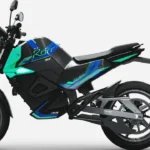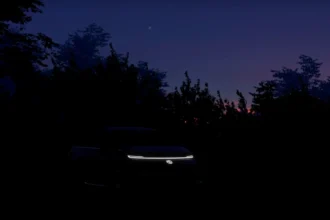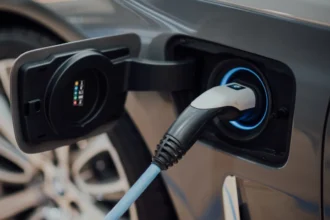Have you ever wondered why electric vehicles are suddenly everywhere in Karnataka? The answer lies in some remarkable numbers that show how quickly people are embracing this new technology. According to data from The Hindu, Vahan dashboard, Bescom, and Oben Electric, Karnataka has become India’s electric vehicle champion, with charging sessions nearly doubling in just six months and vehicle registrations reaching record highs.
Understanding the Numbers Behind Karnataka’s EV Boom
Let’s break down what these impressive statistics really mean for everyday people. The charging session data tells a fascinating story about how quickly habits are changing across the state. When we say “charging sessions,” we’re talking about each time someone plugs their electric vehicle into a public charging station – like filling up at a petrol pump, but with electricity instead.
| Time Period | Charging Sessions | Energy Used (kWh) | What This Means |
| November 2024 | 14,648 sessions | 65,278 kWh | Early adoption phase with people testing public charging |
| April 2025 | 29,538 sessions | 1,85,051 kWh | Mainstream acceptance with nearly double the usage |
The vehicle registration numbers paint an even more dramatic picture of this transformation. Karnataka saw 95,839 new electric vehicles registered in 2022, which jumped to 1,52,663 in 2023 – that’s a whopping 59% increase in just one year, as reported by The Hindu.
Why People Are Switching: Real User Experiences
Behind these numbers are real people making practical decisions about their daily transportation. Sriharsha M. from Jayanagar shared his experience: “Switching to an EV has saved both time and money, as there are no more long waits at petrol stations.” This quote reveals something important about changing urban life in Bengaluru.
- Economic benefits drive adoption: Electric vehicles cost significantly less to operate than petrol vehicles. Where a petrol bike might cost ₹3-4 per kilometer, an electric one costs less than ₹1 per kilometer to run.
- Time savings matter in busy cities: Public charging stations are becoming so common that EV users often find them more convenient than petrol pumps, especially during peak hours when fuel stations have long queues.
- Environmental consciousness grows: Many users choose electric vehicles because they want to reduce air pollution in cities like Bengaluru, where traffic emissions contribute significantly to poor air quality.
The Infrastructure Reality: Successes and Struggles
Karnataka now boasts 5,880 public EV charging stations – more than any other Indian state. Over 4,000 of these stations are concentrated in Bengaluru alone. However, this success story comes with significant challenges that need addressing.
- Unscientific placement creates problems: According to Bangalore Mirror, many charging stations are built in low-traffic areas where few people actually need them, leading to underutilization and wasted resources.
- Legal and land issues slow expansion: DIYguru.org reports that acquiring land for new stations involves lengthy legal processes, especially in older parts of cities where space is limited.
- Grid infrastructure needs upgrading: The existing electrical grid requires expensive improvements including new transformers and power lines to handle the increased demand from EV charging, as noted by DIYguru.org.
- Service reliability remains inconsistent: The Hindu highlights that many public stations experience frequent outages or are difficult to locate, frustrating users who depend on reliable charging access.
- Power quality concerns emerge: Deccan Herald warns that BESCOM’s infrastructure may struggle with EV charging loads, potentially causing voltage fluctuations that could affect other electrical equipment.
Innovation Leading the Way: Solar-Powered Solutions
Despite these challenges, innovative solutions are emerging that point toward a more sustainable future. Bescom has introduced Karnataka’s first battery-powered EV charging station near Devanahalli Airport, which represents a significant technological advancement.
This station uses solar power and second-life batteries – meaning batteries that previously powered electric vehicles but can still store energy for charging stations. This approach reduces waste while providing clean energy for vehicle charging, creating a truly sustainable transportation ecosystem.
What This Growth Means for You
Dinkar Agrawal from Oben Electric notes that “Bengaluru has been one of the top three performing cities” for electric vehicle sales. This success reflects broader changes happening across Karnataka that will affect everyone, whether you own an electric vehicle or not. Cleaner air, reduced noise pollution, and lower dependence on imported fuel benefit entire communities.
As charging infrastructure continues expanding and technology improves, electric vehicles are becoming a practical choice for more people every day. The question isn’t whether this trend will continue, but how quickly the remaining challenges will be solved to make electric transportation accessible to everyone across Karnataka.











